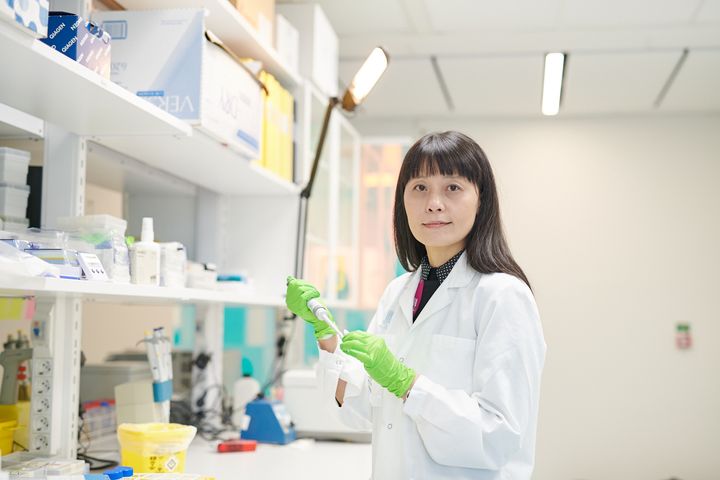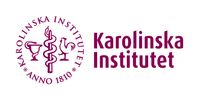mRNA booster vaccines may be a good investment in developing countries
Vaccines based on inactivated SARS-CoV-2 virus are commonly used in developing countries due to their low cost. New research from Karolinska Institutet in Sweden shows that a booster shot of mRNA vaccine to individuals who have received two doses of inactivated vaccine offers the same level of protection against COVID-19 as three doses of mRNA vaccine. The findings are published in the journal Nature Communications.

“Our results indicate that one booster shot of an mRNA vaccine, as a complement to the cheaper but less effective inactivated vaccines, is sufficient to achieve the ‘gold-standard’ immune response measured after three doses of mRNA vaccine,” says Qiang Pan Hammarström, professor at the Department of Biosciences and Nutrition, Karolinska Institutet, who led the study. “That would likely be a good investment even in resource-poor countries to protect against severe COVID-19.”
The study included 175 healthy volunteers with different vaccination histories. The researchers investigated the presence of antibodies and memory B and T cell responses against SARS-CoV-2 after vaccination and booster shots with an inactivated vaccine (Sinovac/Sinopharm), mRNA vaccine (Pfizer-BioNTech/Moderna), or a combination of both.
The results showed that a booster shot of an mRNA vaccine to individuals who had received two doses of inactivated vaccine strongly augmented the levels of neutralising antibodies and memory B and T cells directed against SARS-CoV-2 variants of concern, including Omicron. The levels were markedly higher than that of people receiving three doses of inactivated vaccine, and similar to that in individuals receiving three doses of mRNA vaccine or a boost of mRNA vaccine after natural infection.
“Given that almost half of the COVID-19 vaccine doses distributed worldwide are inactivated vaccines, an improved mRNA booster strategy may benefit billions of people in our fight against emerging variants of concern,” says Qiang Pan Hammarström. “A more widespread use of mRNA booster shots may also help China to overcome their current lockdowns.”
A limitation of the study is the relatively low number of participants; only 16 individuals received vaccination with two doses of inactivated vaccine followed by an mRNA vaccine boost. Moreover, the median age of the study participants was 36 years of age, which is younger than the average global population. Hence, the results need to be confirmed in large-scale longitudinal studies that include different age groups.
The researchers will now continue to study the effect of the heterologous vaccination strategy on emerging variants of the SARS-CoV-2 virus.
“We will for the first time evaluate if this vaccination strategy can neutralise the two emerging Omicron subvariants BA.4 and BA.5, underlying the new wave of COVID-19 in South Africa,” says Qiang Pan Hammarström.
The study was conducted within the research consortium ATAC, funded by the European Commission in response to the COVID-19 pandemic and coordinated by Karolinska Institutet. Other members of the consortium include the Institute for Research in Biomedicine (Switzerland), Policlinico San Matteo in Pavia (Italy), Technische Universitaet Braunschweig (Germany) and the Joint Research Centre of the European Commission. Collaborations with Stockholm University (Sweden), Tehran University of Medical Sciences (Iran), Shahid Beheshti University of Medical Sciences (Iran), and Peking University Health Science Center (China) were also instrumental in the realisation of the study.
The study was also funded by the Swedish Research Council and the Knut and Alice Wallenberg Foundation. The researchers declare no competing interests.
Publication: "Heterologous immunization with inactivated vaccine followed by mRNA-booster elicits strong immunity against SARS-CoV-2 Omicron variant”. Fanglei Zuo, Hassan Abolhassani, Likun Du, Antonio Piralla, Federico Bertoglio, Leire de Campos-Mata, Hui Wan, Maren Schubert, Irene Cassaniti, Yating Wang, Josè Camilla Sammartino, Rui Sun, Stelios Vlachiotis, Federica Bergami, Makiko Kumagai-Braesch, Juni Andréll, Zhaoxia Zhang, Yintong Xue, Esther Veronika Wenzel, Luigi Calzolai, Luca Varani, Nima Rezaei, Zahra Chavoshzadeh, Fausto Baldanti, Michael Hust, Lennart Hammarström, Harold Marcotte, and Qiang Pan-Hammarström. Nature Communications, online 13 May 2022, doi: 10.1038/s41467-022-30340-5.
Contacts
For more information, please contact:
Qiang Pan Hammarström, professor
Department of Biosciences and Nutrition, Karolinska Institutet
Email: qiang.pan-hammarstrom@ki.se
Phone: +46 8 524 835 92, +46 70 388 4943
Images

Karolinska Institutet (https://ki.se/en) is one of the world’s leading medical universities. Our vision is to advance knowledge about life and strive towards better health for all. Karolinska Institutet accounts for the single largest share of all academic medical research conducted in Sweden and offers the country’s broadest range of education in medicine and health sciences. The Nobel Assembly at Karolinska Institutet selects the Nobel laureates in Physiology or Medicine.
Subscribe to releases from Karolinska Institutet - English
Subscribe to all the latest releases from Karolinska Institutet - English by registering your e-mail address below. You can unsubscribe at any time.
Latest releases from Karolinska Institutet - English
New method reveals how the brain and inner ear are formed3.4.2025 20:00:00 CEST | Pressmeddelande
Researchers at Karolinska Institutet have developed a method that shows how the nervous system and sensory organs are formed in an embryo. By labelling stem cells with a genetic ‘barcode’, they have been able to follow the cells’ developmental journey and discover how the inner ear is formed in mice. The discovery, published in Science, could provide important insights for future treatment of hearing loss.
Fluoride in drinking water is associated with impaired childhood cognition7.3.2025 15:30:00 CET | Pressmeddelande
Elevated concentrations of fluoride can occur in well water, and in some countries, it is added to drinking water to counteract caries in the population. A study from Karolinska Institutet in Sweden now supports a few previous studies indicating that exposure to fluoride during the fetal stage or early childhood may impair cognition in children. The study is published in the journal Environmental Health Perspectives.
Children with ARFID face increased risk of disease17.2.2025 17:00:00 CET | Pressmeddelande
Children with avoidant restrictive food intake disorder (ARFID) have an elevated risk of developing psychiatric and physical conditions, a new study from Karolinska Institutet published in JAMA Pediatrics reports. The study highlights the importance of early identification to improve care of these children.
Preterm babies receive insufficient pain management27.1.2025 15:29:17 CET | Pressmeddelande
A large proportion of babies born very early need intensive care, which can be painful. But the healthcare system fails to provide pain relief to the full extent. This is shown by the largest survey to date of pain in neonatal care, now published in the journal Pain.
New study paves way for immunotherapies tailored for childhood cancers20.1.2025 17:00:00 CET | Pressmeddelande
Researchers at Karolinska Institutet and the Astrid Lindgren Children’s Hospital in Sweden have determined how children’s immune systems react to different kinds of cancer depending on their age. The study, which is published in the journal Cell, reveals significant differences between the immune response of children and adults, and has the potential to lead to new tailored treatments for children with cancer.
In our pressroom you can read all our latest releases, find our press contacts, images, documents and other relevant information about us.
Visit our pressroom